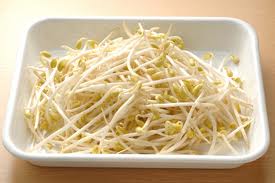 European Journal of Clinical Nutrition (2013) 67, 58–63
European Journal of Clinical Nutrition (2013) 67, 58–63
Effect of soybean protein on novel cardiovascular disease risk factors: a randomized controlled trial C M Rebholz, K Reynolds, M R Wofford, J Chen, T N Kelly, H Me, P K Whelton and J He
Abstract
Background/objectives:
Cardiovascular disease (CVD) is the leading cause of death in the United States and the world. Clinical trials have suggested that soybean protein lowers lipids and blood pressure. The effect of soybean protein on novel CVD risk factors has not been well studied. The objective of this study was to examine the effect of soybean protein on biomarkers of inflammation, endothelial dysfunction and adipocytokines.
Subjects/methods:
The effect of 8 weeks of 40g of soybean protein supplement (89.3mg isoflavones), 40g of milk protein supplement and 40g of complex carbohydrate placebo was examined in a randomized, placebo-controlled, double-blind, threephase crossover trial among adults in New Orleans, Louisiana and Jackson, Mississippi. Plasma levels of inflammation biomarkers (C-reactive protein, interleukin-6, tumor necrosis factor-α), endothelial dysfunction biomarkers (E-selectin, intercellular adhesion molecule-1, vascular cell adhesion molecule-1, thrombomodulin) and adipocytokines (highmolecular weight adiponectin, leptin, resistin) were measured at baseline and at the end of each intervention using immunoturbidimetric and enzyme-linked immunosorbent assay techniques.
Results:
Soy protein supplementation resulted in a significant mean net change (95% confidence interval) in plasma E-selectin of −3.93ng/ml (−7.05 to −0.81ng/ml; P=0.014) compared with milk protein, and in plasma leptin of −2089.8pg/ml (−3689.3 to −490.3pg/ml; P=0.011) compared with carbohydrate. There were no significant changes in any other risk factors.
Conclusions:
Soy protein supplementation may reduce levels of E-selectin and leptin. Further research is warranted to investigate
Am J Clin Nutr 2013 97 109-116
